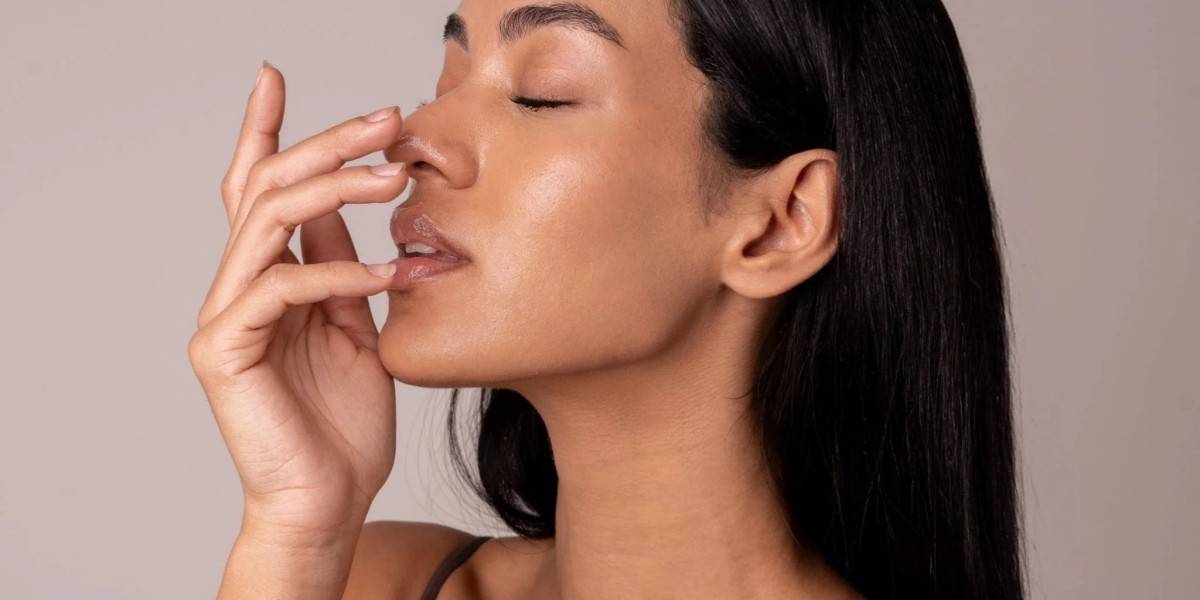Rhinoplasty is often associated with reshaping the nose for aesthetic reasons, but it also has functional benefits that go beyond appearance. Many people are surprised to learn that improving nasal structure can enhance breathing, which may have a positive impact on snoring and sleep quality. Let's delve into Rhinoplasty Dubai
The Link Between Nasal Structure and Breathing
When the nasal passages are blocked or narrow, airflow is restricted. This restriction can force individuals to breathe through the mouth during sleep, which often contributes to loud snoring and disturbed rest.
Common Structural Issues Affecting Breathing
Deviated septum causing uneven airflow
Narrow nasal passages leading to obstruction
Collapsed nasal valves restricting breathing
Irregular bone or cartilage structure affecting airflow
Addressing these structural concerns through rhinoplasty can, in many cases, open up the airways and support smoother breathing at night.
Snoring and Sleep Problems: How They Develop
Snoring occurs when airflow is partially obstructed, causing the tissues in the throat and nose to vibrate. While occasional snoring may be harmless, frequent snoring can disrupt both the snorer’s sleep and the sleep of those nearby.
Contributing Factors
Blocked nasal passages
Enlarged soft tissue inside the airway
Sleep position causing restricted breathing
Weight and muscle relaxation during sleep
When nasal obstruction plays a significant role, improving nasal structure through surgery may reduce the severity of snoring.
Can Rhinoplasty Really Help With Snoring?
For individuals whose snoring is strongly linked to nasal obstruction, rhinoplasty may bring meaningful improvements. By straightening or reshaping the nasal passages, air can move more freely, reducing the vibrations that create snoring sounds.
Improvements Often Reported
Easier nasal breathing
Reduced reliance on mouth breathing during sleep
Decrease in the loudness and frequency of snoring
Better sleep quality overall
It’s important to understand that rhinoplasty may not eliminate snoring in every case, but it can significantly reduce it if nasal obstruction is the primary cause.
Rhinoplasty and Sleep Quality
Sleep quality plays a crucial role in overall health and daily performance. People who struggle with nasal obstruction often wake up feeling unrested because their sleep cycle is disrupted.
Possible Sleep Benefits
Fewer interruptions caused by breathing difficulties
More consistent airflow during rest
Improved oxygen intake throughout the night
Enhanced overall comfort while sleeping
By making it easier to breathe through the nose, rhinoplasty has the potential to help individuals achieve deeper, more restorative sleep.
Rhinoplasty and Sleep Apnea
While snoring is the most common issue linked to nasal obstruction, sleep apnea can also be related. Sleep apnea involves repeated pauses in breathing during sleep, often caused by collapsed airways.
How Rhinoplasty Plays a Role
Opens nasal passages to support steady airflow
Reduces blockages that can worsen sleep apnea
May complement other treatments by improving nasal breathing
Though rhinoplasty alone may not cure sleep apnea, it can make breathing treatments more effective by addressing structural challenges.
Who May Benefit the Most?
Not everyone experiencing snoring will see improvement through rhinoplasty, but certain individuals are more likely to benefit.
Potential Candidates
Those with a deviated septum causing restricted airflow
People with visibly narrow or collapsed nasal passages
Individuals who rely heavily on mouth breathing due to nasal obstruction
People whose snoring has not improved with lifestyle changes
By targeting the root cause—structural nasal issues—rhinoplasty may provide lasting relief from sleep disruptions.
Lifestyle Impact of Improved Sleep
Better sleep has a ripple effect on daily life. When snoring decreases and breathing becomes more natural, individuals often notice improvements in mood, concentration, and overall well-being.
Positive Changes
More energy during the day
Reduced morning fatigue
Better focus and productivity
Enhanced emotional balance
These lifestyle benefits highlight how functional improvements from rhinoplasty can extend far beyond nighttime breathing.
Frequently Asked Questions
Can rhinoplasty completely stop snoring?
Rhinoplasty can significantly reduce snoring if nasal obstruction is the main cause. However, snoring may not disappear entirely if other factors such as throat tissue vibration or sleep habits contribute.
Is rhinoplasty only for cosmetic reasons?
No, rhinoplasty can also address functional concerns such as breathing problems, nasal blockages, and airflow issues. These improvements often have a positive effect on sleep quality.
Can rhinoplasty help with sleep apnea?
While rhinoplasty may not fully resolve sleep apnea, it can improve airflow and reduce blockages. This makes it easier for individuals to manage sleep apnea alongside other treatments.
How soon can sleep improvements be noticed?
Some people may notice improved breathing and reduced snoring relatively quickly, while for others, it may take more time to fully experience the benefits.
Who should consider rhinoplasty for sleep issues?
Individuals with nasal blockages, deviated septum, or restricted airflow who experience persistent snoring or disrupted sleep may consider rhinoplasty as a potential solution.
Final Thoughts
Nose Job in Dubaioffers more than aesthetic transformation—it can play a role in improving breathing, reducing snoring, and enhancing sleep quality. For individuals struggling with nasal obstruction, addressing the underlying structural issue through this procedure may lead to noticeable improvements in nightly rest and overall well-being.






